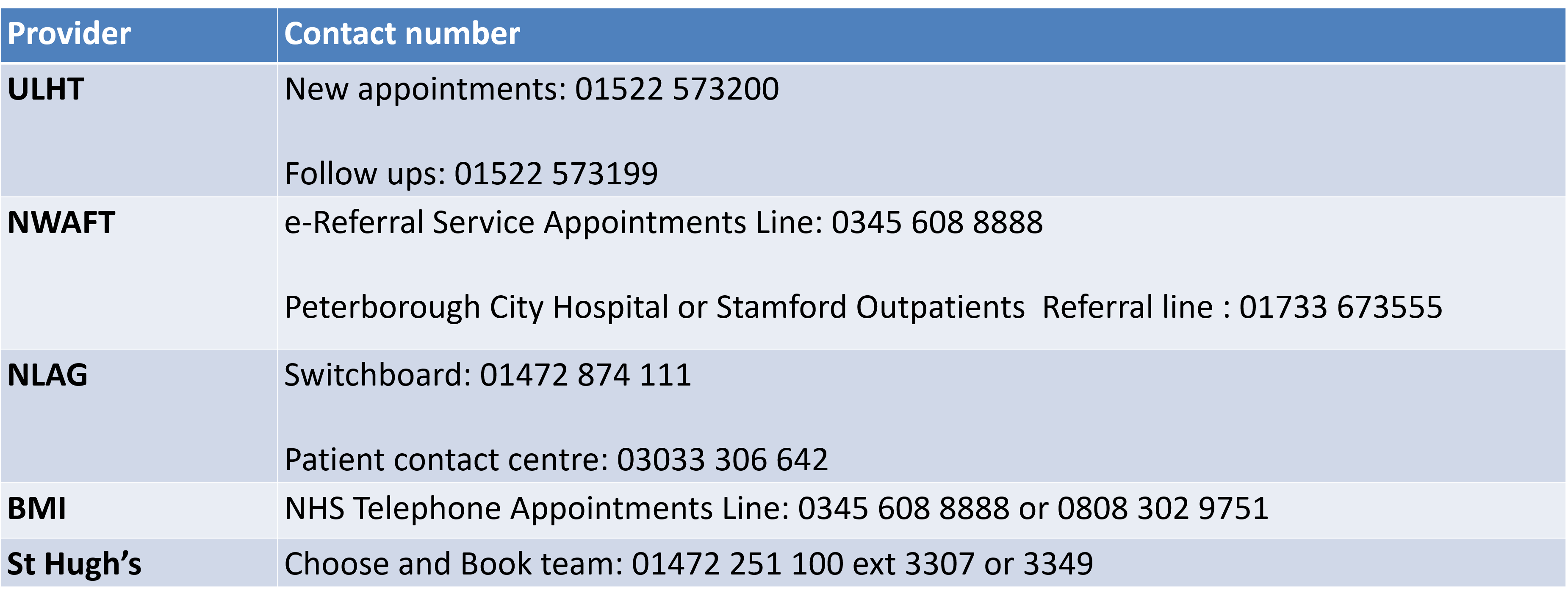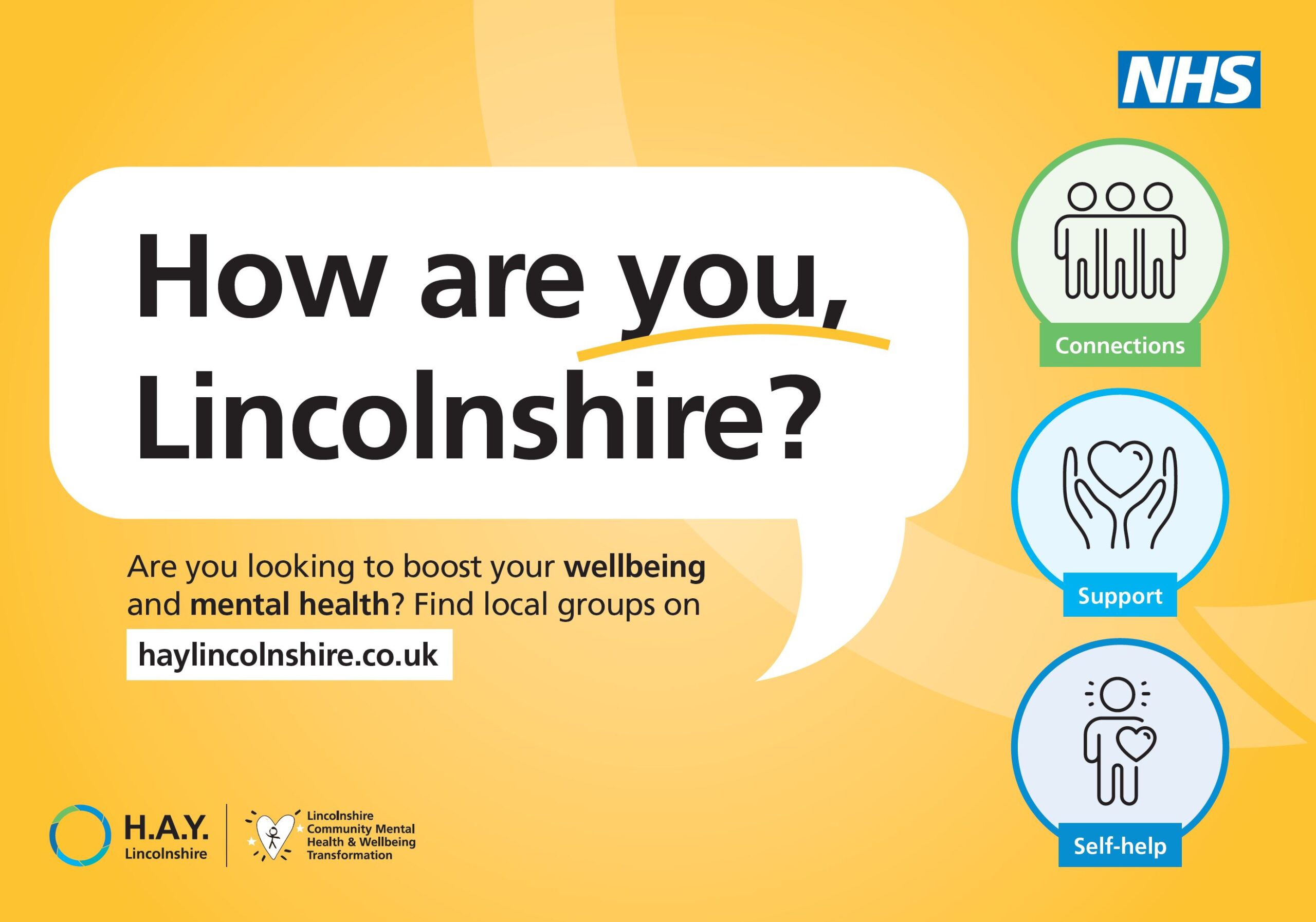My Planned Care
Planned care, or elective care, is the name we give services which are expected and pre-arranged. Services such as general surgery and orthopaedics are classed as planned care (when they are not as a result of emergency treatment needs).
Reducing wait times
One of the NHS’ national priorities is reducing the length of time to receive planned care and in Lincolnshire we have an active programme in place to ensure we continue to improve how quickly we can offer care to the people of Lincolnshire.
In 2025, a new national plan called ‘Reforming elective care for patients’ was published and this is something we are now implementing locally.
My Planned Care Portal
Currently, people who are waiting for a planned care appointment can get an indication of wait times from the My Planned Care portal, which shows how long they are likely to be waiting for their procedure at any NHS hospital. These timescales are only an indication as there are many factors which could affect them.
The platform can be accessed at myplannedcare.nhs.uk.
Elective Care FAQs for patients referred to the services
-
When will I receive my appointment?
Patients who have been referred to a hospital for any procedure will receive a letter from the National E-Referral System or from the hospital directly. If you have not received any correspondence within 4-6 weeks then you can contact your practice to check you have been referred, or check on the NHS app – this is free to download on any smartphone.
Please be aware that the letter from the National E-Referral System may say you will hear from the hospital within 14 days, unfortunately due to unforeseen delays resulting from the Covid-19 pandemic not all hospitals are able to respond within this time and therefore there may be some extended delays. Referrals are reviewed by consultants within the hospital and patients are prioritised according to their clinical condition.
-
What if my condition deteriorates?

If you have been referred to hospital and are waiting to be seen as an outpatient or inpatient, and your symptoms deteriorate you need to contact the hospital you have been referred to for a specialist to review your referral letter and changing symptoms (see contact numbers for each hospital above). Your GP won’t be able to help with getting your referral dealt with any quicker, however, they may be able to support with symptom management if your symptoms have worsened.
In these circumstances your GP practice is unable to help with getting your referral dealt with any quicker, however, we may be able to support with symptom management if your symptoms have worsened.
-
How long will I have to wait for my operation?
The Covid-19 pandemic has had a big impact on the NHS. Although Covid-19 cases in our hospitals have now reduced we are still having to work in Covid-19 safe ways. This means that it will take a long time for the NHS to restore services to pre-pandemic levels.
In Lincolnshire, we are working hard to tackle the backlog of patients whose care has been impacted by the pandemic. We need to do this whilst also keeping our patients safe.
By using the My Planned Care portal you can see how long you are likely to be waiting for your procedure at any NHS hospital. These timescales are only an indication as there are many factors which could affect this and which are out of our control.
The platform can be accessed via the My Planned Care Patient Digital Platform at myplannedcare.nhs.uk
Some patients may be seen quicker if their condition is urgent, for routine patients please note the waiting time may be considerably longer.
-
What if I get worse?
If you have been referred to hospital and are waiting to be seen as an outpatient or inpatient, and your symptoms deteriorate you need to contact the hospital you have been referred to for a specialist to review your referral letter and changing symptoms (see contact numbers for each hospital available under 'What if my condition deteriorates'). Your GP won’t be able to help with getting your referral dealt with any quicker, however, they may be able to support with symptom management if your symptoms have worsened.
-
How do I know if I have been referred?
-
What will happen when I am in the hospital?
Many hospitals have separate facilities for patients undergoing surgery where all patients have been screened for Covid-19. The location of your treatment will be carefully selected. When you are in hospital, you will be asked to wear a mask and all staff will be wearing a mask or other personal protective equipment (PPE) too. If you find it difficult to hear or understand what is being said through the mask, please make staff aware, so that they take this into account and provide alternative ways of communicating with you. Visiting patients in hospitals is now permitted for most areas, but are still subject to some restrictions.
-
What will happen after my operation?
After your operation, you will be able to recover on the ward. The length of time you spend in the hospital will depend on the complexity of your operation and the speed of your recovery.
When you are discharged from hospital, you will normally return to your home. You should have a contact number from your surgical team where you can seek advice if you have any concerns. You should make sure that you follow the instructions in your discharge letter and remain in contact with your GP, who will be aware of any ongoing care or nursing you might need at home.
Before you leave the hospital, you should try to find out your options for any follow-up appointments and post-operative visits that you may need. Unless further treatment is needed (e.g., chemotherapy), or there are complications after your operation, follow-up appointments will often take place via video, or over the phone, to reduce the risk of infection. You can speak with your GP in the same way. If you feel your condition is deteriorating do not hesitate to contact your GP, NHS 111 online or call 111 to get help.
Additional support
-
Coping with Stress
Stress is the feeling of being under too much mental or emotional pressure and, coupled with mental health issues, such as anxiety and depression, it is the reason for one in five visits to GPs.
If you are stressed it is important to prioritise your wellbeing and make some positive changes. Here are some things you can try:
• Be active – exercise helps you deal with your problems more calmly
• Take control – it’s crucial to finding a solution that satisfies you and not someone else
• Connect with people
• Have some me time
• Challenge yourself – do something new or creative, such as learning a language or trying a new hobby or sport
• Avoid unhealthy habits – don’t rely on alcohol, smoking and caffeine as ways of coping
• Do volunteer work – helping people could put your problems in perspective
• Work smarter, not harder – concentrate on the tasks that will make a real difference to your work
• Try to be positive and practice gratitude
• Accept the things you can’t change and concentrate on everything you have control overSpotting the early signs of stress will help you figure out ways of coping and stop you adopting unhealthy coping methods, such as drinking or smoking. There are many things you can do to manage stress more effectively, such as learning how to relax, taking regular exercise and adopting good time-management techniques.
Lincolnshire Talking Therapies provides a range of evidence-based NHS talking therapies to help with stress, depression, anxiety, post-trauma reaction, panic, phobia and Obsessive Compulsive Disorder (OCD). Examples of how the service can help include guided self-help, cognitive behaviour therapy (CBT), counselling, and interpersonal therapy.
If you feel you need support, it’s quick and easy to refer yourself online by visiting www.lincolnshiretalkingtherapies.nhs.uk, calling 0303 123 4000, or by being referred through your GP.
-
Coping with Pain
The Lincolnshire Community Pain Management Service (CPMS) has been designed to support patients living with persistent pain. Our Multidisciplinary Team (MDT) is made up of a variety of pain clinicians such as Nurses, Physiotherapists, Consultants, Psychologists, Occupational Therapists and specialist GPs, to help patients live a full and meaningful life despite their pain. Patients are referred into the service through a health professional e.g. GP/Consultant/Community Service etc – currently there is no self-referral route.
Your first appointment will be made by the by the service contacting you.
For existing patients with queries, please contact the patient co-ordination centre by by calling 01522 581777. The Connect Health website contains a wealth of information for patients.
We have provided some additional resources to help understand and deal with pain management. Please take a look at these sections for informative and educational videos, PDFs and links to credible websites. Click here to find out more.
In addition, there are Public Health web resource available for patients that help education on managing pain.Visit flippinpain.co.uk
-
Mental Health and Wellbeing

We all need good mental health and wellbeing – it’s essential to living happy healthy lives. Self-care and general lifestyle changes can help us relax more, achieve more and enjoy our lives more. They may also help to prevent problems from developing or getting worse and can help us deal with difficult times in the future.
It’s important to remember there isn’t always an instant solution, recovering from mental health problems and maintaining good mental wellbeing takes time and focus.
The HAY Lincolnshire website lists activities and support that help boost wellbeing and mental health, Please visit How Are You Lincolnshire | H.A.Y. Home (haylincolnshire.co.uk)
Find out more about Self-care and accessing support :: Lincolnshire Partnership NHS Trust (lpft.nhs.uk)
-
Adopt a healthy lifestyle
One You Lincolnshire is Lincolnshire's Healthy Lifestyle Service, giving residents in Lincolnshire free access to help them quit smoking, move more, eat well and drink less. This can help you to make significant long-term changes to your health.
One You will support you to make small, sustainable changes to improve your overall health and wellbeing. One You's health coaches are able to provide guidance, motivational support and encouragement to guide you every step of the way. Visit oneyoulincolnshire.org.uk
If you would like to know more about the free weight loss programmes available to the people of Lincolnshire, please visit Lose weight - Lincolnshire ICB.
-
Pre-Operative Assessment Service
A pre–operative assessment is an appointment where your fitness for surgery and anaesthesia is assessed and if any further referrals are required, these can be arranged.
The Pre-Operative Assessment Service is currently based across three of our sites – Boston, Grantham and Lincoln hospitals, and you will usually be offered any face-to-face appointments at the site most convenient for you to attend. Find out more: Pre-Operative Assessment Service - United Lincolnshire Hospitals.